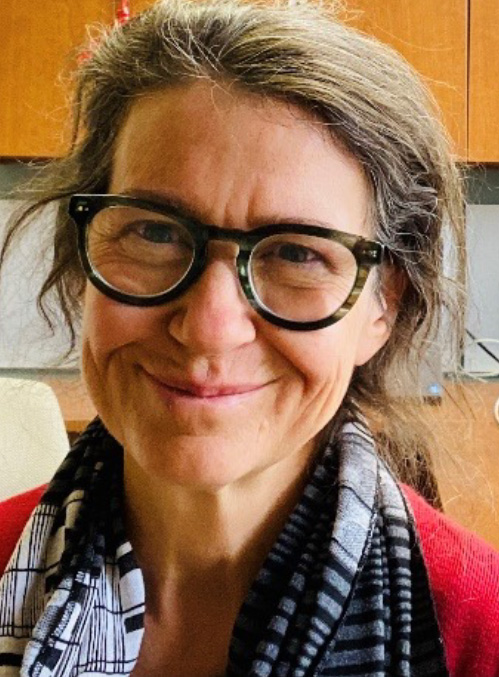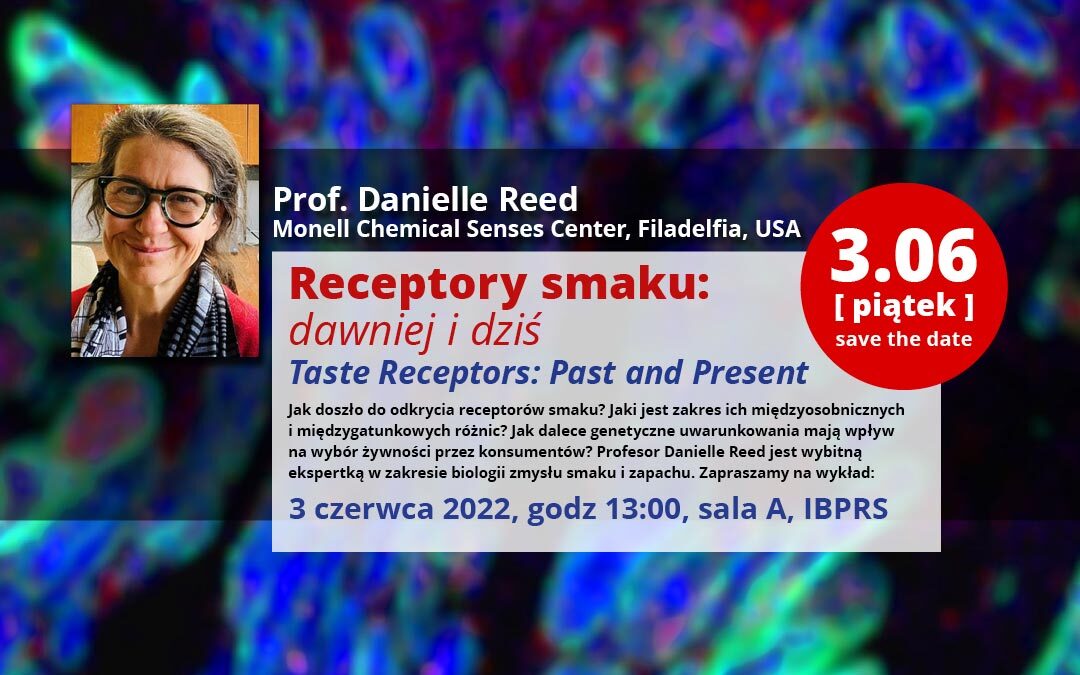
prof. Danielle Reed
Monell Chemical Senses Center
Filadelfia, USA
Zapraszamy na wykład: 3 czerwca 2022, godz. 13:00
Geny receptorów smaku kodujące białka, które reagują na gorzkie i słodkie cząsteczki, zostały odkryte dwadzieścia lat temu i poznaliśmy wiele aspektów ich funkcji, w tym specyficzność ich ligandów, ich ekspresję i dystrybucję oraz role, jakie odgrywają poza jamą ustną i świadomym doświadczeniem smaku. Na tym seminarium dowiemy się jak doszło do odkrycia tych receptorów, poznamy zakres ich różnic międzyosobnicznych i międzygatunkowych oraz usłyszymy nowe informacje na temat genetycznego wpływu tych receptorów na wybór żywności przez człowieka.
Biografia
Prof. Danielle Reed jest ekspertem w dziedzinie biologii zmysłu smaku i zapachu oraz międzyosobniczych różnic w percepcji smakowej i węchowej, które wynikają z genetycznej zmienności genów receptorów tych zmysłów. Prof. Reed jest zastępcą dyrektora Monell Chemical Senses Center w Filadelfii w USA, ośrodka który jest światowym liderem w badaniach chemosensorycznych, czyli badaniach nad percepcją związków chemicznych i przetwarzaniem informacji, którą one ze sobą niosą. Danielle Reed jest również członkiem zespołu kierowniczego Global Consortium of Chemosensory Research (GCCR), które łączy osoby na całym świecie prowadzące badania nad powiązaniami między chorobami układu oddechowego (np. COVID-19) i ich wpływem na zapach i smak. Prof. Reed jest także prezesem Association of Chemoreception Sciences (AChemS), międzynarodowej organizacji naukowców zajmujących się badaniem smaku i zapachu. Danielle Reed ma duże doświadczenie w wystąpieniach publicznych: często prowadzi webinary i wykłady dla profesjonalistów oraz występuje w mediach publicznych, m.in. w prasie (np. The New York Times Magazine), programach telewizyjnych i radiowych, w których dzieli się z opinią publiczną swoją wiedzą i doświadczeniem na temat chemorecepcji u ludzi.
Wersja angielska:
Taste Receptors: Past and Present
Lecture description:
Taste receptor genes coding for proteins that respond to bitter and sweet molecules were discovered twenty years ago and we have learned about many aspects of their function, including their ligand specificity, expression, and distribution and the roles they play outside of the tongue and the conscious experience of taste. In this seminar, we will review the discovery of these receptors, the breadth of person-to-person and species-to-species differences as well as new information about the genetic influences of these receptors on human food choice.
Biography
Prof. Danielle Reed is an expert on the biology of taste and smell and person-to-person differences in perception that arise from genetic variation in receptor genes. Prof. Reed is the Associate Director of the Monell Chemical Senses Center in Philadelphia in the USA, which is a world leader in chemosensory research, which is research on the perception of chemicals and the processing of this information. Danielle Reed is also on the leadership team of the Global Consortium of Chemosensory Research (GCCR), which brings together people who conduct studies all over the world to assess relationships between respiratory illnesses (e.g. COVID-19) and their effects on smell and taste, and she is the President of the Association of Chemoreception Sciences (AChemS), an international organisation of scientists who study taste and smell. Prof. Reed often gives webinars and talks for professionals and appears in public media such as the press (e.g. The New York Times Magazine), TV, and radio programs to share her knowledge and experience on chemosensation in humans with the general public.


